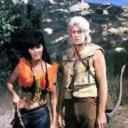Yahoo Answers is shutting down on May 4th, 2021 (Eastern Time) and beginning April 20th, 2021 (Eastern Time) the Yahoo Answers website will be in read-only mode. There will be no changes to other Yahoo properties or services, or your Yahoo account. You can find more information about the Yahoo Answers shutdown and how to download your data on this help page.
Trending News
What sources do you rely on to answer questions in Astronomy & Space?
I myself mainly use the RASC Observer's Handbook, Starry Night software, Wikipedia, and Google.
12 Answers
- DLMLv 71 decade agoFavorite Answer
It completely depends on the question.
Most often, I will use sources such as heavens-above.com, the NASA/JPL website, Phil Plait's Blog or 2012hoax.org, for satellite, NEOs, and 2012 questions, respectively.
For observation questions, I might refer to an online atlas to figure out the person's latitude, or just use the Stellarium software. Sometimes it's more fun to try to picture it in my head, before confirming my initial thought with that software.
I also use a website that has a complete letter written by Ernst Stuhlinger to a nun who was helping with impoverished starving children, and his answer to her about how he could justify spending money on spaceflight when there are so many problems right here on Earth. I don't think I have ever seen it worded better, and that letter is a few decades old.
That same question, I usually accompany a couple of "Spinoff technologies" websites in my sources, typically the NASA/JPL spinoff page and The Space Place spinoff technologies page.
Every once and a while, a snippet from a Phil Harrington article from any of my old Astronomy magazines comes in handy, or some article on Universe Today for something more recent.
Most of the questions, I don't cite sources as the information was something I learned years ago in High School, or I cannot remember where, exactly, I first learned it.
- poornakumar bLv 71 decade ago
1. Internet (particularly Wikipedia) is a good source for material at the level of explaining to others at the conceptual level. I learn a huge amount by reading other answers; it is highly educative particularly from those privileged to have (or having) good college level Astronomy courses.
2. I have my own personal library. Also I compiled data and charts for my use for decades, tailored to my needs, all the observed data over decades.
3. Most answers that merit attention can be classed into two types. Those with wrong information to be clarified and the tutorial type where the step by step educative process is needed. Even those that are not facts but claim to be so need to be rebutted with a line of argument and calculations. My trusty calculator does a lot.
4. Most stuff I possess was self-taught and the errors were weeded out by trial and error when I was observing (I have a 4 1/2" telescope) long ago. By extending the logic some more, the subject got added. Some based on wrong premises and miscalculations (slip-ups) were corrected (thankfully) by other readers of Y!A. I devote much time to Astronomy and do a bit of research, jotting down a theory and calculations. I'd say 'I am the source' (till it is shot down by a penetrative rebuttal or reply). But this approach also causes impatience or petulance when viewing presumptuous, indifferent questions. It needs to be rebutted with calculations and all so that others who read it get the truth of the matter (or at least the facts are spread out before him to take a decision).
5. Trolls and 'blank-heads' are a challenge (ex.: Wat is below Earth ?). Then I may have to probe into the mental picture of the asker. That enables to frame the question appropriately; it needs no other aids or tools except one's sound logic. In that sense such questions are both easy to approach and tough to be cool while answering.
6. I have a reasonable grounding in Indian version of Astronomy. Indian almanac ('Panchangam') and I have some books (including Aryabhata's original compendium) and I am able to calculate crude positions of phases and planet positions etc. I normally translate into the contemporary format of figures through a little bit of spherical trigonometry. The figures, precision were found to be adequate for my purpose (I am not on a Space programme for a Moon shot).
- Dr BobLv 61 decade ago
1) Personal knowledge (based on coursework, observing experience, information gained from books and magazines -- Sky & Telescope, Scientific American, Science News).
2) RASC Observer's Handbook (particularly the tables of planetary information, astronomical and physical data, the sky month by month, and the table of meteor showers).
3) The five volumes of Mathematical Morsels, by Jean Meeus. These books have all sorts of interesting tidbits about things like eclipses, seasons, lunar phases, orbital perturbations, etc.
4) Web -- Wikipedia, NASA pages, USNO pages, and anything else that's based on reputable science.
5) The "interactive sky chart" on the Sky & Telescope web site -- useful when people ask what they saw in some direction of the sky at a certain time. (Of course, there are other planetarium programs, but this one is free and requires no software installation.)
6) For eclipse questions, the NASA web site (by Fred Espenak) is great; but sometimes I can get quicker answers with two old books by Espenak -- "Fifty Year Canon of Lunar Eclipses: 1986-2035" and "Fifty Year Canon of Solar Eclipses: 1986-2035."
Also, I have personal software based on Meeus' book Astronomical Algorithms. This is useful for a wide variety of questions about planetary positions, rising/setting times, almanac information for any year, topocentric time of closest angular separation between the moon and a planet, etc. The results are high-precision; and because I control the source code, I can customize the software if needed to investigate a particular problem.
- 1 decade ago
Wikipedia
Google
Phil Plait's Bad Astronomy Blog
other astronomy blogs and websites
2012hoax.org (pretty much the best single source about the 2012 hoax)
general skeptical websites
my own knowledge about astronomy and cosmology
the astronomy books I own
- How do you think about the answers? You can sign in to vote the answer.
- popovoleg70Lv 61 decade ago
To answer questions in Astronomy and Space i rely on ,as a rule ,on God with help middle school knowledge and English vocabulary.
- Doug RLv 41 decade ago
I use information I have heard on the history channel or internet. Astronomy is a truly fascinating subject to me so I try to keep up to date on the information I know. If I feel I can't provide and accurate answer, I typically don't answer the question.
- Anonymous1 decade ago
I do use Google a lot, but sometimes it can be heavy spade work finding the right search terms to eliminate all of the bogus websites..... there are a lot of pseudo-scince websites out there with all the right "triggers" to get a search hit when you type in just a few words..... the advanced search has saved me plenty of times.
- 1 decade ago
I've read books and magazines on astronomy since before I can remember. If people don't want to believe me because I can't remember the source, it's up to them. I don't care.
- Daryl SLv 71 decade ago
Books
Magazines (Sky & Telescope, Astronomy)
Wikipedia
Google Search
Astronomical web sites (e.g. universe today, space earthsky, etc.)
Personal Experience
- AlanLv 71 decade ago
Much the same as yourself except the RAS Canada, So I use Patrick Moore's yearbook
Glorious eclipses gives lots of eclipse data.








